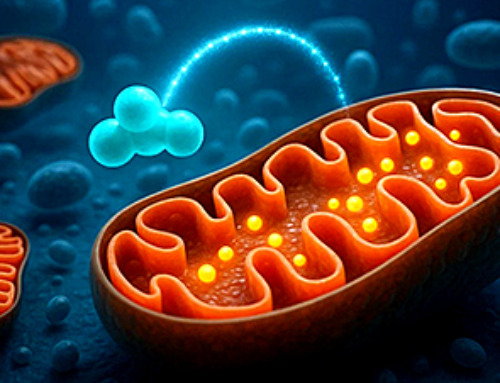Cedars-Sinai Cancer investigators have identified two promising new treatment options for men with recurrent prostate cancer—both of which helped patients live longer without their disease progressing than the current standard treatment. The results of their international Phase III clinical trial were published today in the New England Journal of Medicine.
“If these treatments are approved by the Food and Drug Administration, our results will be practice changing,” said Stephen Freedland, MD, associate director for Training and Education and the Warschaw, Robertson, Law Families Chair in Prostate Cancer at Cedars-Sinai, and lead author of the study. “In the study, both of these new options improved metastasis-free survival while preserving quality of life.”
Cancer of the prostate, a walnut-sized gland that helps make semen, will be diagnosed in 288,300 men in the U.S. in 2023, according to American Cancer Society estimates. For some, treatment may never be needed because they have a slow-growing form of the disease, but those with more aggressive prostate cancer are often first treated with surgery or radiation therapy.
“Unfortunately, in about a third of those patients, the cancer recurs within 10 years,” Freedland said.
Patients with aggressive recurrence are treated with androgen deprivation therapy (ADT), also known as hormone therapy, which reduces the patient’s production of the male sex hormone testosterone. Testosterone helps prostate cancer cells grow and spread, and the hormone therapy effectively reduces the growth-stimulating effects. But Freedland said ADT has two downsides: It doesn’t completely eliminate testosterone, and it can cause many side effects.
“When you go on ADT, the testosterone level in the blood is reduced, but not completely eliminated,” Freedland said. “And the concern is that the testosterone that remains may still be enough to stimulate tumor growth. Also, patients don’t love the idea of being on hormones.”
In this study of 1,068 prostate cancer patients from 244 sites in 17 countries, Freedland and fellow investigators tested two experimental interventions—one to address each of these issues.
In the randomized clinical trial, one-third of the patients received ADT plus a medication called enzalutamide, which blocks the effects of testosterone. Enzalutamide keeps any testosterone remaining in the blood from stimulating the growth of cancer cells.
Another third of the patients received enzalutamide alone. This option relied on the medication to block the effects of testosterone even though testosterone levels in the patients’ blood were not reduced.
“We wanted to see whether enzalutamide on its own was so effective that we didn’t need the ADT,” Freedland said.
The final group of patients received ADT alone, which is the current standard treatment.
Investigators found that the combination of ADT plus enzalutamide reduced the risk of metastasis or death by 58% over ADT alone. They found that enzalutamide alone reduced the risk of metastasis or death by 37% over ADT alone. Both treatments maintained quality of life relative to the ADT alone.
“While the combination therapy offers greater risk reduction, some men might prefer enzalutamide alone. It does a good job of preventing cancer spread or death, with different side effects that may be more acceptable for some men,” Freedland said.
The next step is for the makers of enzalutamide to apply for FDA approval, so the experimental therapy can come into wide use, Freedland said.
“Optimizing therapy for patients with aggressive recurrence after their prostate cancer is initially treated has been an unmet need,” said Dan Theodorescu, MD, Ph.D., director of Cedars-Sinai Cancer and the PHASE ONE Distinguished Chair. “The results of this trial point the way to two options which the study showed were more effective than current standard of care, giving these patients and their providers the opportunity to choose a potentially improved course of therapy that best meets their needs.”
More information: Stephen Freedland et al, Improved Outcomes with Enzalutamide in Biochemically Recurrent Prostate Cancer, New England Journal of Medicine (2023). www.nejm.org/doi/10.1056/NEJMoa2303974
News
This Tiny Cellular Gate Could Be the Key to Curing Cancer – And Regrowing Hair
After more than five decades of mystery, scientists have finally unveiled the detailed structure and function of a long-theorized molecular machine in our mitochondria — the mitochondrial pyruvate carrier. This microscopic gatekeeper controls how [...]
Unlocking Vision’s Secrets: Researchers Reveal 3D Structure of Key Eye Protein
Researchers have uncovered the 3D structure of RBP3, a key protein in vision, revealing how it transports retinoids and fatty acids and how its dysfunction may lead to retinal diseases. Proteins play a critical [...]
5 Key Facts About Nanoplastics and How They Affect the Human Body
Nanoplastics are typically defined as plastic particles smaller than 1000 nanometers. These particles are increasingly being detected in human tissues: they can bypass biological barriers, accumulate in organs, and may influence health in ways [...]
Measles Is Back: Doctors Warn of Dangerous Surge Across the U.S.
Parents are encouraged to contact their pediatrician if their child has been exposed to measles or is showing symptoms. Pediatric infectious disease experts are emphasizing the critical importance of measles vaccination, as the highly [...]
AI at the Speed of Light: How Silicon Photonics Are Reinventing Hardware
A cutting-edge AI acceleration platform powered by light rather than electricity could revolutionize how AI is trained and deployed. Using photonic integrated circuits made from advanced III-V semiconductors, researchers have developed a system that vastly [...]
A Grain of Brain, 523 Million Synapses, Most Complicated Neuroscience Experiment Ever Attempted
A team of over 150 scientists has achieved what once seemed impossible: a complete wiring and activity map of a tiny section of a mammalian brain. This feat, part of the MICrONS Project, rivals [...]
The Secret “Radar” Bacteria Use To Outsmart Their Enemies
A chemical radar allows bacteria to sense and eliminate predators. Investigating how microorganisms communicate deepens our understanding of the complex ecological interactions that shape our environment is an area of key focus for the [...]
Psychologists explore ethical issues associated with human-AI relationships
It's becoming increasingly commonplace for people to develop intimate, long-term relationships with artificial intelligence (AI) technologies. At their extreme, people have "married" their AI companions in non-legally binding ceremonies, and at least two people [...]
When You Lose Weight, Where Does It Actually Go?
Most health professionals lack a clear understanding of how body fat is lost, often subscribing to misconceptions like fat converting to energy or muscle. The truth is, fat is actually broken down into carbon [...]
How Everyday Plastics Quietly Turn Into DNA-Damaging Nanoparticles
The same unique structure that makes plastic so versatile also makes it susceptible to breaking down into harmful micro- and nanoscale particles. The world is saturated with trillions of microscopic and nanoscopic plastic particles, some smaller [...]
AI Outperforms Physicians in Real-World Urgent Care Decisions, Study Finds
The study, conducted at the virtual urgent care clinic Cedars-Sinai Connect in LA, compared recommendations given in about 500 visits of adult patients with relatively common symptoms – respiratory, urinary, eye, vaginal and dental. [...]
Challenging the Big Bang: A Multi-Singularity Origin for the Universe
In a study published in the journal Classical and Quantum Gravity, Dr. Richard Lieu, a physics professor at The University of Alabama in Huntsville (UAH), which is a part of The University of Alabama System, suggests that [...]
New drug restores vision by regenerating retinal nerves
Vision is one of the most crucial human senses, yet over 300 million people worldwide are at risk of vision loss due to various retinal diseases. While recent advancements in retinal disease treatments have [...]
Shingles vaccine cuts dementia risk by 20%, new study shows
A shingles shot may do more than prevent rash — it could help shield the aging brain from dementia, according to a landmark study using real-world data from the UK. A routine vaccine could [...]
AI Predicts Sudden Cardiac Arrest Days Before It Strikes
AI can now predict deadly heart arrhythmias up to two weeks in advance, potentially transforming cardiac care. Artificial intelligence could play a key role in preventing many cases of sudden cardiac death, according to [...]
NanoApps Medical is a Top 20 Feedspot Nanotech Blog
There is an ocean of Nanotechnology news published every day. Feedspot saves us a lot of time and we recommend it. We have been using it since 2018. Feedspot is a freemium online RSS [...]





















